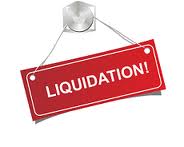Find any Australian or New Zealand company or fund (dead or alive) by using SEARCH above or go directly to the site:

When a company goes into liquidation, it really is the death knell. The company is to be wound up.
Shareholders may place their company into voluntary liquidation, if, for example, they think it is going nowhere and they may as well sell off assets, discharge liabilities and get back the remainder.
A liquidator is appointed to the vast majority of New Zealand company failures, as can be seen from the following table:
|
Appointments of External Administrators - NZ
|
||||||
| 2005/6 | 2006/7 | 2007/8 | 2008/9 | 2009/10 | 2010/11 | |
| Receivers | 238 | 291 | 626 | 656 | 676 | 663 |
| Liquidators | 3893 | 3991 | 4715 | 6382 | 3071 | 4767 |
| Administrators | 21 | 25 | 23 | 24 | ||
The court can also order liquidation, but more usually it occurs when a company has failed and creditors resolve that that it be wound up. The liquidator, who is usually a professional accountant, terminates company activities, collects and sells the assets and distributes the resulting funds to creditors in accordance with statutory priorities.
What does it mean to you as a shareholder?

Generally this is the worst possible outcome for shareholders. Rarely in circumstances where the company has failed, is there anything left over for distribution to shareholders.
Remember who your directors and executives were and resolve to avoid in future any companies they may be involved in.
FURTHER READING
Company Liquidation explained by the NZ Companies Office
HELP PLEASE
deListed and InvestoGain are largely the result of voluntary effort. We welcome input and updates from investors, company officers, insolvency practitioners, regulatory bodies, registries and others to admin@delisted.com.au.